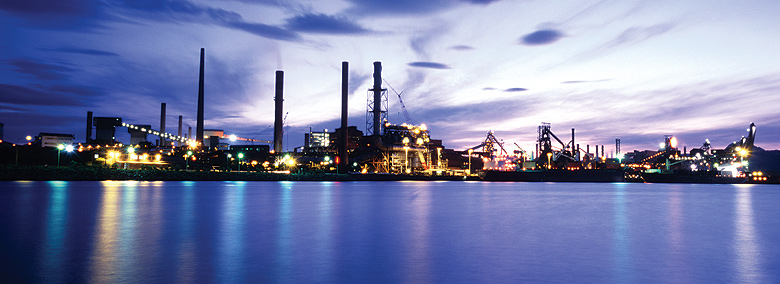Liverpool Plains' farmers are celebrating the New South Wales state government's decision, on August 11, to buy back BHP Billiton's Caroona coalmine licence for $220 million.
This comes after a struggle that began in 2008, when farmer Tim Duddy and the local community began a blockade that put a spanner in BHP Billiton's efforts to start drilling operations on his family's Rossmar Park property.
BHP Billiton (BHP)
The first screening of the cinematic tale of women fighting for jobs at Port Kembla steelworks screened to 250 people at the Gala Cinema in Warrawong on April 17.
Set in 1973, The Women Who Were Never There tells a dramatic story, based on real events, of women who chained themselves to the front gates of BHP to protest the lack of jobs for women.
The film brings to life the drama of the women who took on Australia's biggest corporation in their fight for equality.
"Cool fuel" was the groovy title of the Ed! supplement about natural gas in the April 5 edition of The West Australian that gets distributed to all our schools.
To be sure natural gas is "cool" when liquefied. But nowhere among the topics covered, such as "Careers in LNG", "Power to You" and "West is best" is there any mention of natural gas as a significant contributor to catastrophic global warming. Nor does it mention that because of fugitive emissions in the production cycle natural gas is up there with coal as a carbon polluter.
 The dam took just half-an-hour to entomb half the village of Bento Rodrigues in 18 metres of iron-ore tailings, reddish mud and water slurry.
A āmountain tsunamiā is how firefighters in Mariana, in Minas Gerais in south-eastern Brazil, described the bursting of mining company Samarco Santaremās iron-ore tailings dam on November 5.
Marcos de Eufrasio, a 38-year-old stonemason who was cutting rock on that sunny afternoon, said that, from nowhere, he heard a āmighty roarā.
The dam took just half-an-hour to entomb half the village of Bento Rodrigues in 18 metres of iron-ore tailings, reddish mud and water slurry.
A āmountain tsunamiā is how firefighters in Mariana, in Minas Gerais in south-eastern Brazil, described the bursting of mining company Samarco Santaremās iron-ore tailings dam on November 5.
Marcos de Eufrasio, a 38-year-old stonemason who was cutting rock on that sunny afternoon, said that, from nowhere, he heard a āmighty roarā.
The historian Geoffrey Blainey recently addressed staff at BHP headquarters in Melbourne on the 130th anniversary of the forming of Broken Hill Propriety Company Limited in 1885.
Blainey told the assembled audience āthere is no commercial institution in Australia that has contributed so much to the nationās historyā.
To set the historical record straight, he should have added that there is no commercial institution that has fought so hard against the workers whose surplus value it expropriated than BHP.
 BlueScope Steel announced a on August 24. This is an improvement on last yearās loss of $83 million, but not by much compared to past profits.
The results were released on the day the Australian share market suffered its worst fall since the global financial crisis, yet BlueScopeās share price went up by almost 9%.
BlueScope Steel announced a on August 24. This is an improvement on last yearās loss of $83 million, but not by much compared to past profits.
The results were released on the day the Australian share market suffered its worst fall since the global financial crisis, yet BlueScopeās share price went up by almost 9%.
More than a decade ago, BHP Billiton demerged its steelmaking facilities from its then highly profitable minerals and energy division.
The two steel plants in Port Kembla and Whyalla, which were formerly part of an integrated company that produced the iron ore and the coking coal for steelmaking, became stand-alone steelmakers at a time when China became a serious competitive threat.
Its Port Kembla and Whyalla operations were also separated from each other, becoming BlueScope in Port Kembla and One Steel (now Arrium) in Whyalla.
 Author Carla Gorton at the Cairns launch of the book and associated film project. Photo: Jobsforwomenfilm.com.
Women of Steel: Gender, jobs & justice at BHP
Carla Gorton & Pat Brewer
Resistance Books, Sydney
$10 paperback, 73 pages
Author Carla Gorton at the Cairns launch of the book and associated film project. Photo: Jobsforwomenfilm.com.
Women of Steel: Gender, jobs & justice at BHP
Carla Gorton & Pat Brewer
Resistance Books, Sydney
$10 paperback, 73 pages
On June 12 the Geelong Womenās Unionist Network (GWUN) hosted a book launch for at Geelong Trades Hall. The purpose of the event was not only to launch the book recounting the Jobs for Women campaign which took on BHP in Wollongong in 1970s but also to raise funds for the Jobs for Women film project.
 Four Jobs for Women leaders in front of the steelworks in the early 1980s. Photo: Jobs for Women Facebook
In Wollongong in the early 1980s, jobs for women were scarce. They either had to wake at dawn to travel to Sydney on the diesel train or they sewed in backyard sweatshops for minimal wages.
Four Jobs for Women leaders in front of the steelworks in the early 1980s. Photo: Jobs for Women Facebook
In Wollongong in the early 1980s, jobs for women were scarce. They either had to wake at dawn to travel to Sydney on the diesel train or they sewed in backyard sweatshops for minimal wages.
There is a rising tide of worrying economic news in this country and it highlights once more the need to cut back on unnecessary spending, like allowing single mothers to eat.
The billionaires and their corporate courtiers had a sneer and snigger fest when BHP Billiton, Xstrata and Rio Tinto informed the Tax Office they would pay zero mining tax for the first quarter of this financial year.
The federal Labor government's mid-year budget update downgraded the tax's forecast revenue from $13.4 billion over four years to $9.1 billion. But these mining giants told the media it was not clear how much, if anything, they would pay over the rest of the financial year.
What a sorry end to the mining super-tax profits saga.
- Previous page
- Page 2
- Next page







